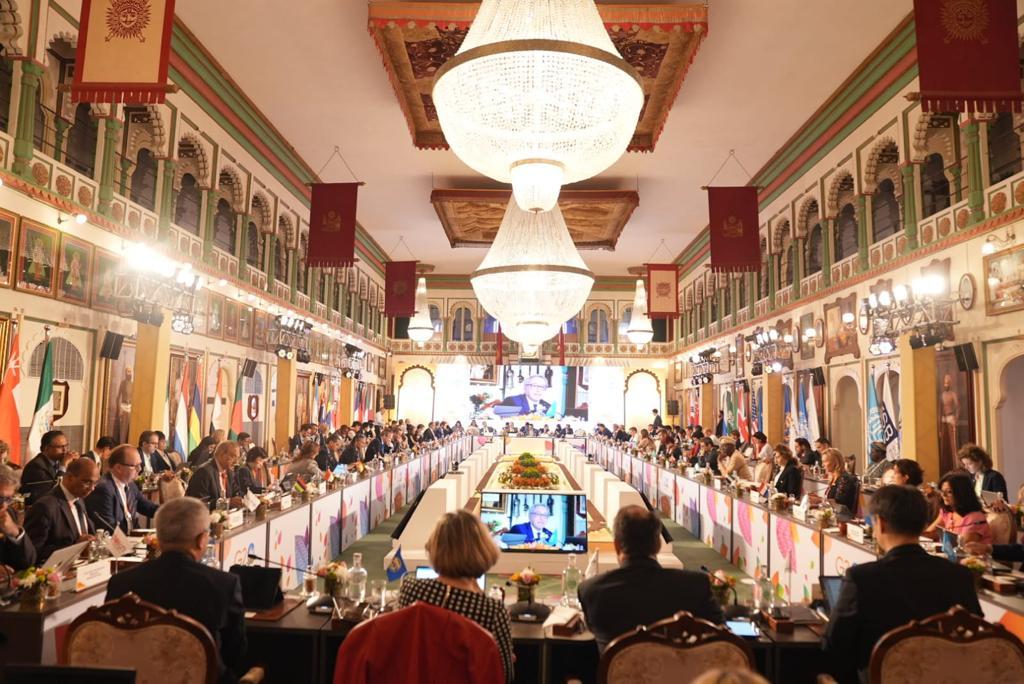Substantive conversations on key global issues of inclusive growth, multilateralism, and women-led development, as well as 3Fs (Food, Fuel, and Fertiliser), tourism, and culture, were the highlights of the third day of the first Sherpa Meeting of India’s G20 presidency, being held in Udaipur, Rajasthan. Today marked the conclusion of all five substantive sessions of the Sherpa meeting in Udaipur.
Initiating the discussions, Amitabh Kant, G20 Sherpa provided an overview of India’s G20 priorities on the above subjects, across six different working groups on Agriculture, Trade and Investment, Employment, Anti-Corruption, Tourism, and Culture, as well as ways to strengthen cooperative efforts therein. He emphasised the need for transformational efforts in agriculture, trade, employment, and combating corruption and economic crimes. During discussions on the global impediments to economic growth, delegates underscored the importance of attaining resilient growth through long-term solutions and meaningful partnerships. Kant expressed appreciation for the support extended by the delegations on the wide range of priorities set out by India.
This was followed by Session 4 which focused on the need for multilateral reforms and building institutions that are better able to capture the needs and ambitions and reflect the priorities of all regions and countries across the globe and address the challenges of the day. Issues pertaining to addressing disruptions and promoting security of food, fuel, and fertiliser supplies were deliberated upon. Strengthening and enhancing the mandate and resources of Multilateral Development Banks, reforming the WTO, the importance of Green Hydrogen in achieving green energy transition including for hard-to-abate sectors, and reformed multilateralism for greater peace and harmony, were some of the major areas of discussion. Given the contemporary global socio-economic and geopolitical concerns, it was highlighted that the discussion is timely, and of great significance.
Session 5 discussions centered around women-led development, and the need to have women at the forefront of development. The interventions in the session drew attention to critical priorities such as reducing gender gaps, enhancing the capacity of women through education and skilling, promoting women in leadership roles, and boosting female labour force participation. Leveraging the tourism sector to accelerate progress towards SDG achievement, and protection, promotion, and preservation of culture, as also restitution of cultural properties, were the other areas covered in the session.
With this, the five substantive Sessions held over two days of the sherpa meeting came to a conclusion. India’s G20 Sherpa highlighted focal areas of discussion and stressed the need to reinforce collective action of the G20 nations.
After the substantive sessions, a tour of the renowned crafts village, Shilpgram, was conducted for the G20 Sherpas and the delegations. Guests were captivated by its architecture, and the diversity of Rajasthani arts and crafts that was showcased. The delegations were also treated to an illuminous and colourful musical treat at the historic Manek Chowk, Udaipur, in the evening.


























